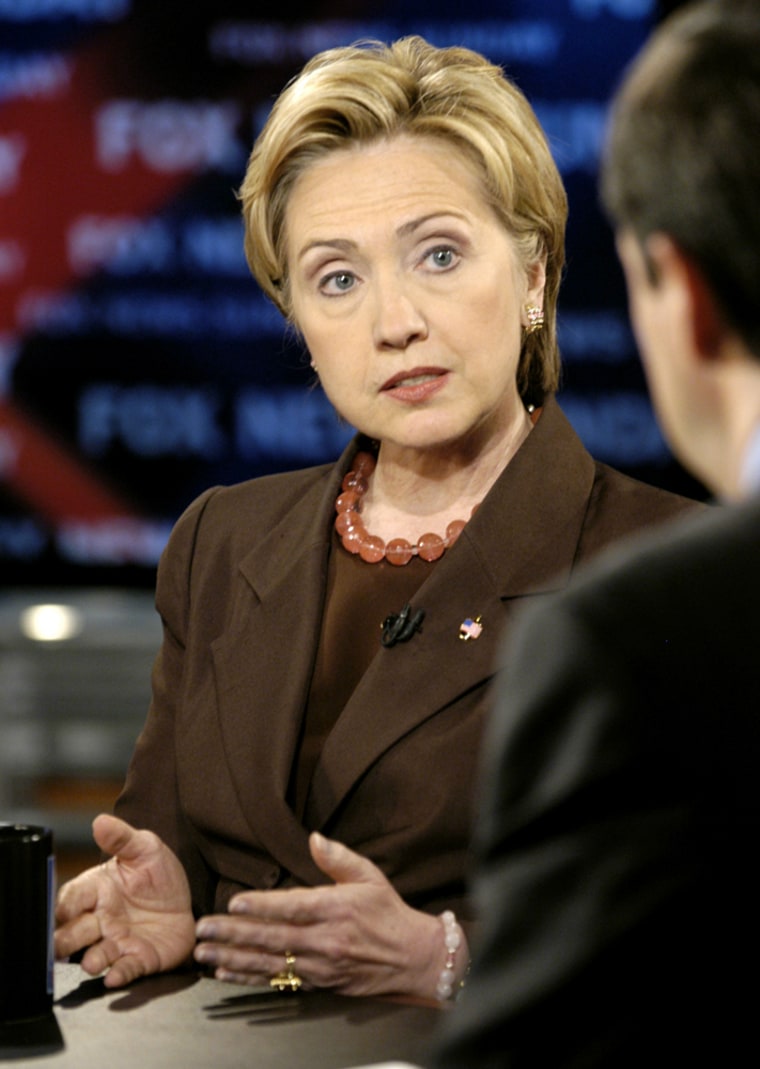Democrats running for president seem to find Fox News Channel as ripe a target as President Bush, a development with dangerous implications for both the network and the politicians.
Fox has tried twice, without success, to set up a debate with the major Democratic contenders. Both times they failed because of pressure applied by online liberal activists, who consider Fox biased toward Republicans and conservatives.
The first debate, which was to be co-sponsored by Fox and the Nevada Democratic party, had been set for this August but was canceled. Fox then teamed with the Congressional Black Caucus Political Education and Leadership Institute for a Sept. 23 debate that is still scheduled, even though John Edwards, Barack Obama and Hillary Clinton all said they won’t attend.
The candidates will be at a debate sponsored by the CBC Institute and CNN, which seemed like “a more appropriate host,” an Obama spokesman said.
Candidates have fought over debate moderators, formats and even the size of podiums to stand behind. It’s hard to recall a debate being rejected because the candidates don’t like the network that would carry it.
The political calculation is simple. Democratic candidates are speaking chiefly now to potential primary voters, many with a long-festering resentment against Fox.
“When Edwards stood his ground against Fox, and now Obama and Clinton, it was an attempt for each of them to present themselves as slayers of the dragon, the deadly Fox dragon,” said Stuart Rothenberg, editor of a nonpartisan political newsletter based in Washington.
The reaction to former President Clinton’s confrontation last September with Fox Sunday-morning host Chris Wallace taught many Democrats there was political ground to be gained in fighting with Fox.
Weenies?
The risk to this strategy is it could make the candidates look like, well, weenies.
“If you can’t handle the people at Fox News Channel, it makes people wonder if you can handle the Iranians, the North Koreans, the Chinese, the Russians and maybe even the Canadians,” said Ellis Henican, a Newsday columnist and Fox News contributor.
Henican is usually called upon to take the liberal side of a debate, and he’s frequently outnumbered. He finds the experience exhilarating, though. Something about going into enemy territory makes you look and feel strong. Democratic candidates shouldn’t assume that everyone who watches Fox is going to vote against them, he said.
A feud against Fox might not be the best long-term plan, either. People there have been known to hold a grudge.
The assumption is that a candidate’s antipathy toward Fox won’t last beyond a primary campaign. Even now, the Democrats aren’t ignoring Fox — they will answer reporters’ questions and consent to the occasional interview.
Candidates aren’t objecting to Fox so much as they were taking a stand against organizations like the Nevada Democratic Party and the CBC Institute appearing to endorse the network, said Joe Trippi, a Democratic consultant who ran Howard Dean’s 2004 campaign.
Oh, no, say many activists. This is personal, or at least it should be.
“Any time a candidate gives a Fox reporter the time of day, it reinforces the idea that Fox is real news,” said James Rucker, who runs the Web site colorofchange.org. That Web site and MoveOn.org have been the most zealous in fighting the idea of Fox-sponsored debates.
Begrudgingly, Rucker admits that candidates shouldn’t ignore Fox. But they should speak out against Fox whenever they appear, he said.
That attitude disturbs those who worry about the country retreating into ideological camps that want nothing to do with one another.
CNN, MSNBC or other networks have had no such trouble setting up debates. Republicans have long complained about media bias against them — MSNBC is currently accused of that by Fox’s Bill O’Reilly and CNN was long derided as the Clinton News Network — but their leaders rarely pass by a camera.
Who loses?
“At the end of the day, I think voters and potential candidates are the ones that lose from this,” said Republican political consultant Ed Rollins. “I don’t think Fox loses on this.”
There are signs, however, that Fox executives recognize a danger they face, and did even back at the time of the Clinton-Wallace fracas. (A Fox News Channel spokeswoman said the network declined to participate in this article).
Being seen as primarily receptive to only one side of a political debate is ultimately constricting, particularly if your rivals don’t have that problem. Hosting debates for both parties is a way to show Fox plays fair. Fox recognized the importance of that by working with the traditionally Democratic CBC Institute at the same time it was trying to arrange the debate in Nevada.
While still clearly the ratings leader among cable news networks, Fox in 2006 suffered its first sustained viewership declines ever.
Fox is used to playing on offense, asserting that it is fair and balanced and saying, by implication, that other network news operations are not, said Tom Rosenstiel, director of the Washington-based Project for Excellence in Journalism.
“Now they have to react,” he said. “Whether they’re being defensive or not, they’re not setting the terms of the debate. That’s somewhat unexplored territory for them in their short history.”
Democrats have made clear that it’s a fight they’re enjoying, whether or not it proves shortsighted.
